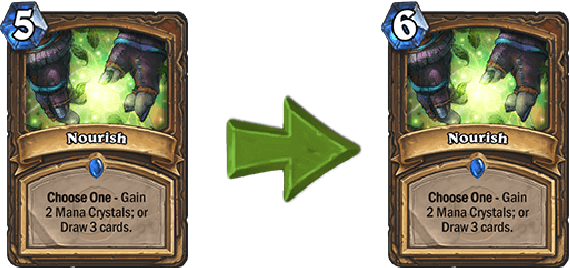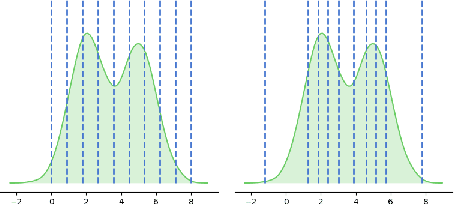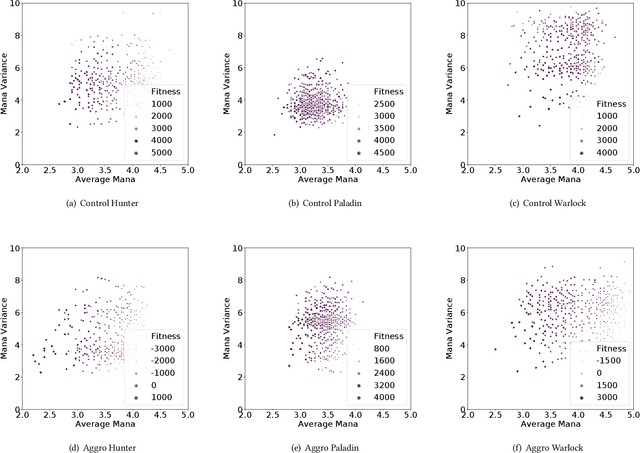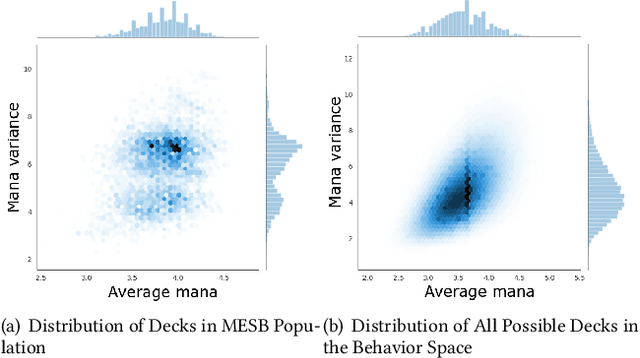Mapping Hearthstone Deck Spaces through MAP-Elites with Sliding Boundaries
Paper and Code
Apr 24, 2019



Quality diversity (QD) algorithms such as MAP-Elites have emerged as a powerful alternative to traditional single-objective optimization methods. They were initially applied to evolutionary robotics problems such as locomotion and maze navigation, but have yet to see widespread application. We argue that these algorithms are perfectly suited to the rich domain of video games, which contains many relevant problems with a multitude of successful strategies and often also multiple dimensions along which solutions can vary. This paper introduces a novel modification of the MAP-Elites algorithm called MAP-Elites with Sliding Boundaries (MESB) and applies it to the design and rebalancing of Hearthstone, a popular collectible card game chosen for its number of multidimensional behavior features relevant to particular styles of play. To avoid overpopulating cells with conflated behaviors, MESB slides the boundaries of cells based on the distribution of evolved individuals. Experiments in this paper demonstrate the performance of MESB in Hearthstone. Results suggest MESB finds diverse ways of playing the game well along the selected behavioral dimensions. Further analysis of the evolved strategies reveals common patterns that recur across behavioral dimensions and explores how MESB can help rebalance the game.
 Add to Chrome
Add to Chrome Add to Firefox
Add to Firefox Add to Edge
Add to Edge